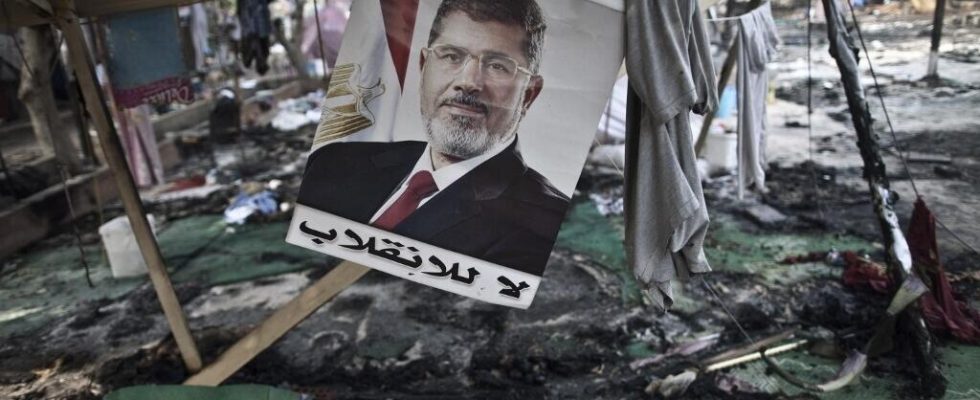On August 14, 2013, in Rabaa al-Adhawiya and Nahda squares in Cairo, the Egyptian authorities bloodily repressed a protest movement by supporters of deposed President Mohamed Morsi against the military coup led a few weeks earlier by Abdel Fattah al-Sisi. The day, which left several hundred dead, remains known as that of the Rabaa massacre, a turning point in the contemporary history of the country. Interview with Mohamed Lotfy, executive director of the Commission for Rights and Freedom, a human rights organization.
3 mins
RFI: Ten years after the Rabaa massacre, where between 800 and 900 demonstrators were killed by the police, no one responsible has been tried. Rabaa, is it the story of impunity?
mohamed lotfy : Indeed, no officer, no official of the Egyptian government of the time was brought before the courts, was questioned. There was indeed an investigation launched immediately after. And its results were presented to the Minister of the Interior at the time, Abdel Fattah al-Sissi, who became president today: that was the end of the story.
Rabaa was in reality a confirmation of the immunity offered to the Egyptian security forces for a very long time: this was already the case during the time of Hosni Mubarak. During the revolution in 2011, almost no officers were tried or convicted for the murder of protesters at the time. Rabaa is the paroxysm of this impunity. We therefore prolong this situation where security agents feel totally protected by the Egyptian government vis-à-vis exactions, violence, murders.
How have fundamental rights evolved in Egypt after the Rabaa massacre?
It was the official announcement of the beginning of a new era in power, where repression has become the general rule. This massacre gave an indicator of the level of violence that the authorities are ready to use. It was a shock for everyone. The right to demonstrate disappeared with Rabaa. There have of course been several moments of mobilization against the government in the last ten years. And each time, the response has been the same: violence, police brutality, mass arrests. The most recent wave of calls to demonstrate was in November, during the COP on climate change held in Sharm-el-Sheikh. And we counted more than 1,500 arrests in just two days.
How do you judge the state of fundamental rights today in Egypt?
The situation today in terms of civil rights and political freedom is worse than it was before 2011, under Hosni Mubarak. It is perhaps comparable to the days of Nasser in the 1960s, when all parties were banned. Today, there are legal parties and others that are illegal. But even those who are authorized are not allowed to mobilize their members, to organize events. The press is completely under the control of companies affiliated with members of the government or the security services above all. If it is necessary to compare, it would be necessary to compare especially at the time of Nasser where all the civil and political freedoms were confiscated.
On August 14, 2013, the Rabaa al-Adawiya massacre
That day, tens of thousands of demonstrators gathered in Rabaa al-Adawiya and Nahda squares, in the heart of Cairo, to denounce the coup against elected President Mohamed Morsi.
Security forces surrounded the square to disperse the sit in. Tear gas, armored vehicles, snipers in helicopters or on the roofs of buildings. Several newspapers quoting security sources indicate after the fact that a dispersal plan put in place by the Ministry of the Interior provided for several thousand victims.
A few hours after the start of the forced evacuation, the Muslim Brotherhood calls on Egyptians to ” take to the streets against the massacre” perpetrated by the new regime. For the NGO Human Rights Watch, it’s a ” mass killing which took place that day.
The Rabaa massacre marks the beginning of a campaign of arrests against the brotherhood of the Muslim Brotherhood and speedy trials in the name of the fight against terrorism.
Retired Marshal Abdel Fattah al-Sissi took power by force on July 3, 2013. He will restore all power to the military and lead a fierce fight against the Muslim Brotherhood, the only organization competing with the army in Egypt and from which Mohamed Morsi came. In December 2013, she was declared “terrorist organization” and its political branch, the Freedom and Justice Party, dissolved.
